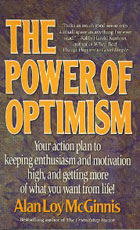The Difference Between Hostility and Anger
"A host of recent studies say the same thing: People who are chronically hostile, who see the world through a lens of suspicion and cynicism, not only leave behind them a trail of carnage but also shorten their own lives. Hostility is suicidal, according to Redford Williams, M. D., an internist and behavioral medicine researcher at Duke University Medical Center. Thirty years ago two San Francisco cardiologists, Dr. Meyer Freidman and Dr. Ray H. Rosenman coined the term Type A to describe a person who is ambitious, competitive, always in a hurry, fiercely focusing on work. Such a person, their research showed, was more prone to heart disease.
"Many of us had our doubts about that research, because it seemed obvious that people who stay busy and have an intense dedication to their work are usually happy and healthy. Now Williams's work sharpens the earlier research considerably. He shows that it is primarily one group of Type A people who are at risk: angry, hostile people. Using the Minnesota Multiphasic Personality Inventory (M. M. P. I.), a widely used psychological test that measures, among other things, the level of one's hostility, he found that hostile medical students were five times more likely to have a heart attack than those who were not hostile. A similar study looked at 118 lawyers who had taken the M. M. P. I. as students at the University of North Carolina School of Law. Those who scored highest on the hostility scale were 4.2 times more likely to have died three decades later from heart disease or other causes.
The Antidote to Hostility
"If you feel hostility, what should you do about it? The answer does not lie in trying to live without any anger, swallowing all your frustration. None of the research suggests that it is unhealthy to display anger from time to time. In modern life many situations arise that are bound to cause frustration with other people, and expressing it in an appropriate manner can be good for one's health. The problem arises, says Dr. Williams, when hostility is chronic, when it becomes a regular personal style.
"The antidote is to develop what Williams calls a trusting heart, and he outlines twelve steps to develop a more amiable disposition. Some of the steps are obvious, such as learning to relax with meditation, but a surprisingly large number of his suggestions are patterned after cognitive therapy. . . . People who learn to listen to their thoughts and discover themselves harboring vindictive, critical evaluations of others — habitual ways of thinking about others that make us pessimists — can substitute more reasonable responses. For instance, if an elevator takes a long time to come, think of a good reason why it may have stopped along the way rather than rage against some imaginary person's thoughtlessness in holding it up. Try to see things from the other person's point of view, says Williams. Empathy can soothe the troubled heart.
"What we're really discussing here is the virtue of tolerance. I once saw hanging on a monastery wall this saying: 'Love comes to those who are able to accept human nature as it is.' When Jesus urged that we not take the speck out of our neighbor's eye until we deal with the log in our own, he was asking us to laugh at ourselves — at our tendency to be so bothered by the frailties of others when we have frailties ourselves — sometimes much more grievous ones. The more relaxed we become with our imperfection, the more tolerant we will become of the world at large."
